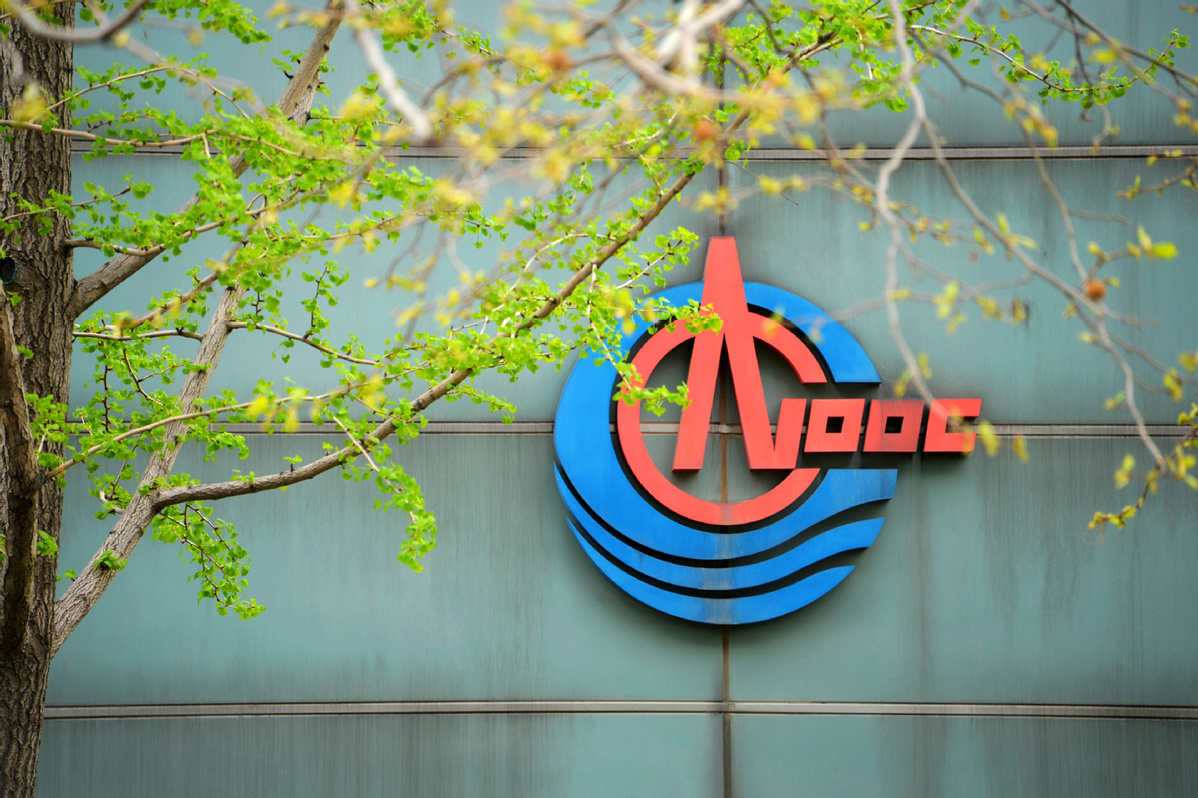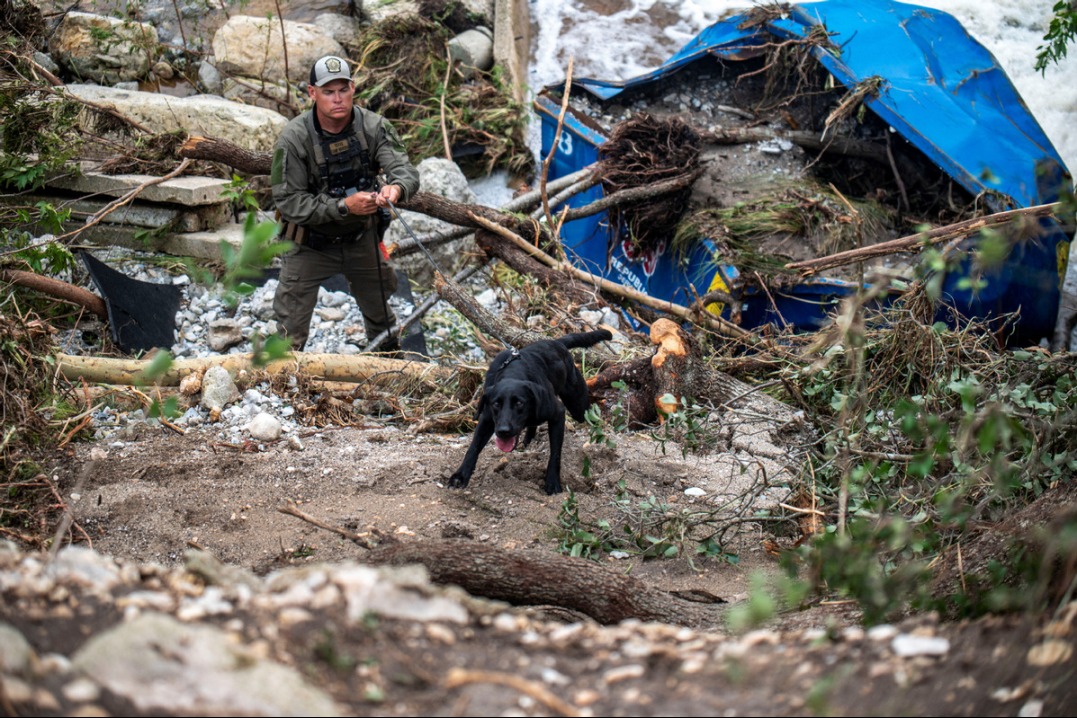CNOOC adds oilfields in Brazil
By ZHENG XIN | CHINA DAILY | Updated: 2022-05-09 07:32

Offshore oil and gas production ensures China's sufficient energy supply
China National Offshore Oil Corp (CNOOC)'s ultra-deepwater pre-salt oilfield in Brazil was put into operation on Tuesday, the latest effort by the country's top offshore oil and gas producer to step up overseas oil and gas production.
With a total investment of more than $20 billion, the Mero oilfield, a deepwater pre-salt project located in Brazil's Santos Basin, can produce 180,000 barrels of crude oil per day and is expected to reach its peak production by the end of 2022, the company said.
CNOOC Ltd, the exploration and production arm of CNOOC, the country's top offshore oil and gas driller and one of the largest independent oil and gas exploration and production companies in the world, currently holds a 9.65 percent working interest in the Mero block, alongside operator Petrobras (38.6 percent), and partners Shell PLC (19.3 percent), TotalEnergies (19.3 percent) and China National Petroleum Corp (9.65 percent), and Pre-Sal Petroleo SA holds 3.5 percent as the Federal Union representative in non-contracted areas.
The exploration of pre-salt oilfields, which account for one-third of global oil reserves, has become one of the major trends in the global oil industry in recent years, said Huang Yehua, general manager of the Brazilian unit of CNOOC.
Huang said CNOOC has been actively laying out plans to take part in pre-salt oilfield projects worldwide and will continue stepping up investment in the sector.
In addition to the Mero field, which is also the third-largest ultra-deepwater pre-salt oilfield in the world that boasts high-quality and high-yield carbonate reservoirs, the company also has a 5 percent stake in the Buzios field in the Santos Basin pre-salt area with an annual production capacity exceeding 3 million metric tons, he said.
Despite their high oil and gas production, pre-salt oilfields are usually located in ultra-deep water and are challenging for exploitation and exploration. CNOOC's extensive participation in global giant ultra-deepwater pre-salt oilfields illustrates that China has mastered advanced technologies of exploration, which will further provide momentum for future innovation, said Li Ziyue, an analyst with BloombergNEF.
Offshore oil and gas production is expected to continue rising over the next few years with great upside potential, Li said.
According to the China Offshore Energy Report drafted by the CNOOC Energy Economics Institute, CNOOC's offshore oil and gas production projects are ranked top in the world.
Between 2017 and 2018, CNOOC Ltd has added three more blocks-two located in the Santos Basin and one located in the Espirito Santo Basin (Block 592). In deepwater Block 592, CNOOC Ltd has begun exploration as the operator of the block, holding 100 percent interest.
In access to public information, the Brazilian market plays a key role in China's energy supply as 10 percent of China's crude imports last year came from South America and Brazil has always been a major crude provider.
CNOOC's expanding presence in Brazil will in turn ensure sufficient energy supply for China, Huang said.
China's dependence on crude oil imports dropped from 73.6 percent in 2020 to 72 percent in 2021, with its total crude imports declining to 513 million tons last year, down 5.3 percent year-on-year, according to the China Petroleum and Chemical Industry Federation (CPCIF).
Analysts attributed the drop in crude imports and decreasing energy dependency to increasing efforts by domestic energy companies in local oilfield exploration and exploitation in the past few years. Domestic oil giants have all been ramping up exploration investment during the past few years, at home and abroad, which contributed significantly to the country's decreasing reliance on oil imports, said Fu Xiangsheng, vice-chairman of the CPCIF.
Luo Zuoxian, head of intelligence and research at the Sinopec Economics and Development Research Institute, agreed, adding that the oil majors' mastery of oil and gas exploration technology has also been gradually on the rise in recent years.
According to Huang, while the Brazilian unit of CNOOC will further expand its presence in the South American market, it will also be in talks with Chinese refiners and expand potential sales channels to ensure domestic energy security in the country from overseas oilfields.
CNOOC Ltd said earlier that its planned capital expenditure for 2022 will be between 90 billion yuan ($13.62 billion) and 100 billion yuan, with exploration, development, production and others to account for approximately 20 percent, 57 percent, 21 percent and 2 percent, respectively, of its total spending.
In addition to its ever-expanding presence in South America, the company has also successfully inked a natural gas sales agreement in Nigeria last year as it vows to further increase investment in its existing oil and gas operation in the country, which it described as one of its most strategic and important overseas business undertakings.
The company attributed its sustainable and successful growth as an upstream oil and gas producer to consistently finding and developing world-class assets.
After 15 years of deepwater project management, the company has gradually mastered advanced ultra-deep drilling technology and has applied the technology in domestic offshore waters, which has, in turn, boosted domestic oil and gas production, said Liu Yongjie, chairman of CNOOC International.
According to Liu, while the COVID-19 pandemic has brought numerous challenges to the company's business abroad, it has also brought along many opportunities.
As the international division of CNOOC Ltd, the company's portfolio is made up of assets in more than 20 countries, including conventional oil and gas, unconventional oil sands, as well as shale oil and gas-both onshore and offshore-in Asia, Africa, the Americas, Europe and the Middle East, he said.
During its 14th Five-Year Plan (2021-25) period, the company vows to continue to step up oil and gas exploration to enhance its energy supply capacity to ensure domestic energy security.
Wang Dongjin, chairman of CNOOC, said the operation of the ultra-deepwater pre-salt oilfield is a major milestone in China-Brazil energy cooperation, and the company will take advantage of the project in Brazil to further step up energy cooperation in countries and regions involved in the Belt and Road Initiative.
























